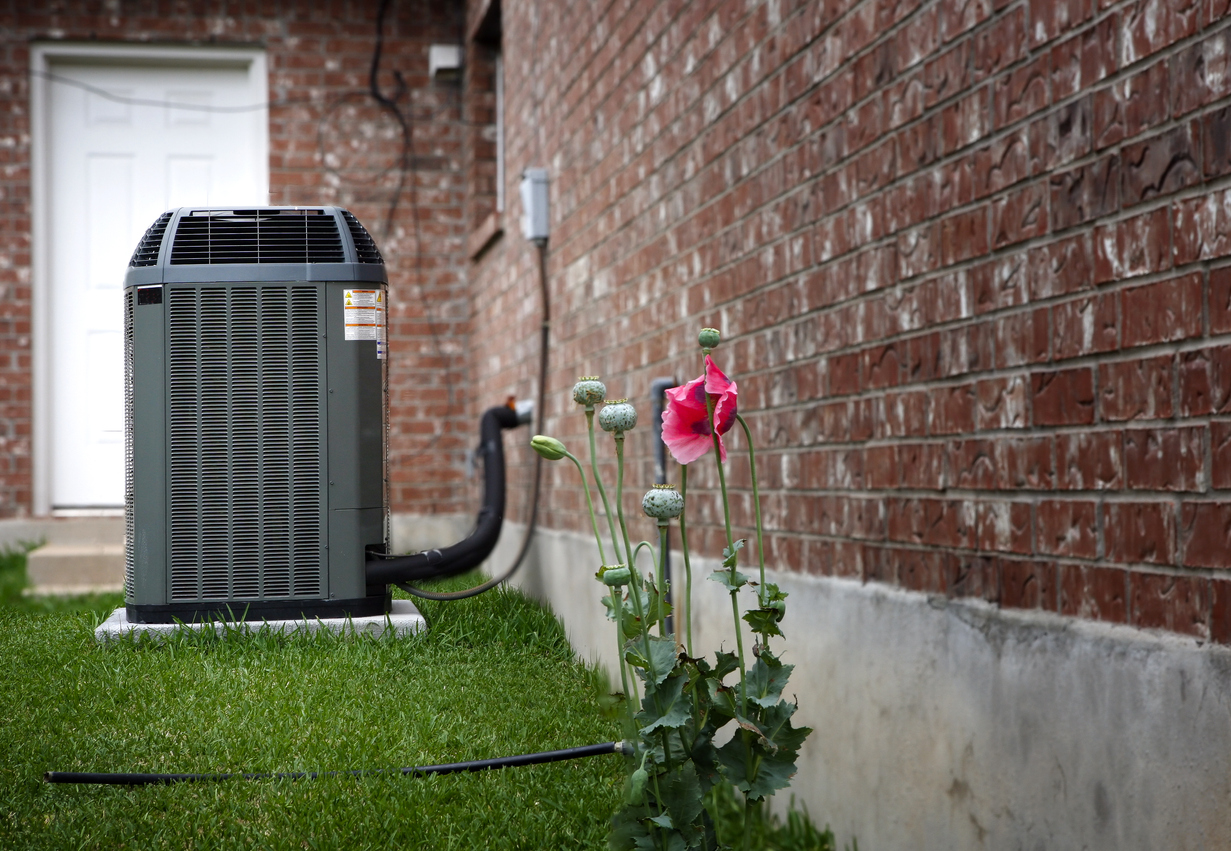
In the humid heat of Maryland summers, air conditioning can be a beautiful thing. Unfortunately, if you’re not careful, it can also be expensive.
Depending on a variety of factors, keeping your home cool and comfortable can drive big costs on your electric bill. But it doesn’t necessarily have to. There are tactics that can minimize some of the costs that keeping the AC running will incur.
Here’s how to get the most from your AC system this summer while spending the least.
Change your filters regularly.
This is the one of the most important actions homeowners can take in caring for their AC systems. Regularly changing air filters reduces the amount of dust present in the system and enables a more efficient flow of air – which translates pretty directly to more efficient and cost-effective AC.
As we’ve written about before, air filters should be changed every 90 days at least, depending upon your living circumstances. If you have pets or a large family, you’ll probably be better served by changing them more often.
Keep obstructions away from coils.
Another action to take to improve the efficiency of your AC unit is to keep obstructions away from your unit’s coils.
The condenser coils play a critical role in cooling; they condense your system’s refrigerant and essentially remove heat from the air. Over time, though, these coils can become dirty or even blocked, especially if they’re in environments where there’s a lot of dirt or dust nearby. When the coils become dirty, your unit will have to work much harder to provide the same amount of cooling.
Maintaining a clean environment around your unit can help to combat the buildup of dirt on your coils. If you do notice dirt, it’s also possible to clean the outside of your coils yourself, but you’ll likely want to request service from an HVAC technician to ensure that the inside of the condenser coil is fully clean.
Set a schedule (and don’t cool the house when you don’t need to).
Here’s a dead-practical tip to save money on AC costs: don’t cool the house when you don’t need to.
In other words, don’t leave your unit set at a low temperature when you’re away from home for longer periods of time. It’ll have to continue running to maintain that state, and you’ll have to pay for the comfort you won’t be home to enjoy.
One way to ensure that you don’t waste energy through unnecessary AC is to set your systems to run on schedules. Even if you don’t have one of the newest “smart” thermostats (which do bring a host of benefits), the vast majority of thermostats will still allow you to set timed schedules. If you work a 9 to 5, for example, you can set your system so that it doesn’t work as hard during those hours – but have it kick back on a bit before you get home so that you enter to comfort.
Manually setting your system back will have the same effect, but you’ll probably forget to make the adjustment every so often (especially if you’re ever in a hurry). Having a set schedule is more dependable.
Don’t set the temperature back more than 5 to 8 degrees.
While setting the temperature back when you’re not home can save costs, you actually don’t want to set your unit too far back. In terms of efficiency, the optimal setting is typically no more than five or eight degrees back.
That’s because, if you go too far back, your system will be forced to run longer to return the air to your ideal temperature. If you like things at 73 degrees when you’re home but your home heats up to 90 degrees during the day, your system will spend more energy closing the gap to reach your preferred temperature than it would maintaining a temperature of 78 degrees.
Draw the shades.
Another very practical method of cutting AC costs: draw the shades during the day.
Sunlight has a big heating impact, especially in the summer. Car owners often use sunshields to combat the heat (which really works); homeowners can draw the shades for a similar effect.
Of course, if you’re home during the day and prefer to see outside, you’ll have to choose between achieving utmost efficiency and getting a decent view. Not everyone can live like a vampire – but if you can, your AC unit will be more efficient.
Check the location of the thermostat.
Sometimes, thermostats are placed in locations where excess heat impacts their functionality.
For example, if your thermostat is in an area that’s exposed to a great deal of direct sunlight, it could easily heat up during the day, read a temperature that’s higher than the surrounding air, and cause your AC unit to kick on unnecessarily. The same goes for thermostats that are placed in the kitchen; when you’re cooking, the temperature of the room may rise and kick on your AC, even if the rest of your house is quite cool.
So, make sure that your thermostat is in a place that accurately represents the temperature of the house. Generally, this means an interior hallway or a more open area (away from direct sunlight) like the dining room. If your thermostat isn’t in a representative location, you may want to consider relocating it – or investing in technology that will more accurately gauge the temperature of your home.
Pair sensors with your thermostat for more representative temperature readings.
Sensors are one of the technologies that can enable more representative or granular temperature readings.
Honeywell, for example, sells sensors that pair with their T10 thermostat to represent temperatures in multiple areas of the house. That means that you can take the average of, say, your kitchen, dining room, and bedroom, and have your AC regulate those cumulatively (instead of kicking on when your kitchen heats up or the sunlight in your bedroom reaches the wall).
Close extra vents.
Finally, you can improve the cost efficiency of your AC system if you close extra vents in areas of the house where cooling may not be needed. Most commonly, this is done in the basement.
The reality is that you probably don’t need to blast your basement with cold air to maintain a steady temperature; being below ground and out of direct sunlight already helps with that. So, you can close those basement vents to decrease the space your AC unit is pushing air to and increase your unit’s efficiency.
Need AC Help? Get in Touch with Us.
These cost-saving practices can get you on track to better AC and lower electric bills. But if you’re still having issues, it may be best to have your HVAC systems professionally reviewed.
The reality is that any complex machine system needs regular maintenance and upkeep to keep performing efficiently. You wouldn’t neglect having your car taken care of, so don’t leave your AC unit neglected, either.
To get the best value, choose a service agreement from Rod Miller. We’ll inspect your unit twice per year to ensure that it’s working the way you need it to.
Don’t leave your comfort to chance this summer. Get in touch with us today to learn about our cost-saving service agreements or to request assistance with AC issues.


